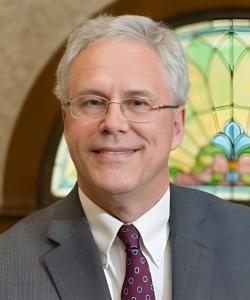Those who age alone are “orphan elders.” Orphan elders may have no surviving spouse, may never have had children, or may have lived long enough to have no surviving close friends or family. Because of health or financial reasons, they may be socially isolated, either completely or partially.
One-quarter of all Americans over age 65 are already part of or are at risk to join this group, according to a recent University of Michigan Health and Retirement Study. The 2012 U.S. Census data showed that about one-third of Americans aged 45 to 63 are single, which is up 50 percent from 30 years ago in 1980. More couples are deciding to remain childless. In fact, between 1980 and 2012, the number of childless women aged 40 to 44 doubled. Advances in medical care lead to longer life spans. Geographical separation of family and friends due to employment commitments contributes to the growth of orphan elder population.
Our government and society need to prepare how to advocate for this population. No coordinated structure exists to address this burgeoning population. They are at greater risk of winding up in a nursing home because there is no one to care for them at home. Unscrupulous people can financially exploit orphan elders.
With no family member or friend available to help, orphan elders require heightened awareness by those with whom they do come in contact. These contacts may include attorneys, accountants, physicians, nursing home and hospital personnel, first responders, and even community members who are in a position to identify those who are at risk. After a person is identified as being at risk, only enhanced networking solutions can prevent the person from slipping between the cracks. We, as a community, must make sure their physical and emotional needs are being addressed.
What can an orphan elder do to cope with aging alone? They must identify professionals and friends who will support them. For instance, they can appoint a friend to serve as agent under an Appointment of Health Care Representative. They can appoint a trusted friend, attorney, or financial advisor to help manage their finances under a Durable Power of Attorney. They can have a trusted agent as a joint owner on a small checking account so that if they become disabled the trusted agent can help them manage their finances. To avoid financial abuse, they can review their finances with their attorney and financial advisor on a regular basis.
Orphan elders must show a willingness to have others help them with their care – whether it is from a home care agency, a visiting nurse or housecleaner. They must be willing to keep up their medical care through regular visits to the doctor. The more friends and community members can support an orphan elder, the more likely he or she will take these steps.
Certainly, socializing with others can increase the likelihood of finding others to care for them. Orphan elders should attend places of worship, community events, and social gatherings whenever they are able. Establishing regular visits will enhance the likelihood of connection with others. Making housing choices that enhance visiting such as in condominiums, elderly housing, and urban assisted living, will make a measurable difference. Indeed, regular connections to a community lead to better health in older adults, including lower mortality rates, delayed functional decline, and reduced risk of cognitive problems.
For more on Orphan Elders, read the fine article by Amy Acheson, Esq. entitled "Supporting 'Orphan' Elders" in NAELA News, Jan/Feb/Mar. 2016.

